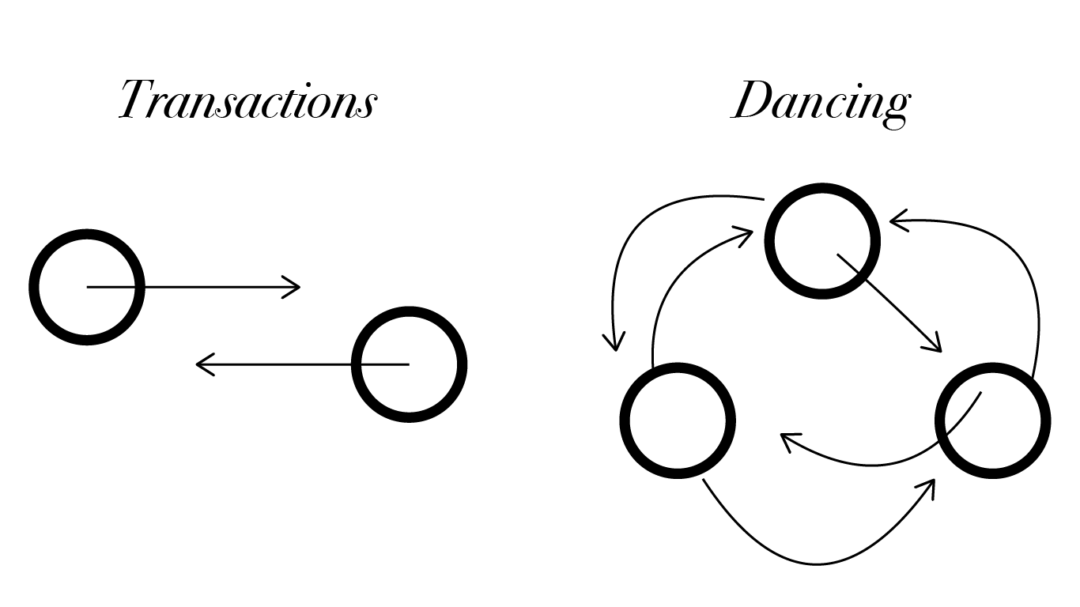I work with people in their 18-30’s and have noticed a trend of bad listening habits. We are bad at interacting face-to-face. The other day I saw a conversation between two people. As one was talking, the other person took out their phone and said, “I’m still listening”
…as they responded to a text.
Question: Were they still listening? Is that what listening is?
Most mornings I do this thing that is a little weird to some people. I read three obituary entries. I’ve talked about the power of this before. The idea came from Austin Kleon and I’ve learned many lessons from the practice. One lesson is this. At the end of life, titles, accomplishments, and possessions are not what give meaning. For most people, it is relationships. A good obituary entry includes the relationships important to that person.
More and more I see people struggle to connect. This is a huge problem because humans are wired for connection. We all crave it. In the book, Social: Why Are Brains Are Wired to Connect, Matthew Lieberman says that being,
“socially connected will be a lifelong need, like food and warmth.”
None of us want to journey alone. We crave connection. We want people to know us deeply. Our relationships are one of the main things that give life meaning.
But we have a problem.
The Missing Ingredient to Connection
Bad listening habits are keeping us from connection. Whether or not we realize it, this one thing is holding us back from deeper relationships and understanding. This lack of connection is making us lonelier than ever. We feel isolated.
This isolation adds to our anxiety and depression because we are social creatures. Humans are made to live in community. In relationship. But we’re losing our ability to enter these relationships.

Listening is a super-power that can transform our connections. People love to connect to good listeners. They want to be known. People long for someone else to see them for who they are and hear their unique experiences.
In our pursuit of deeper connections and more meaningful relationships—we don’t need to be more funny or interesting. We don’t need to impress people with our knowledge.
We need to master the skill of listening.
Listening—The Superpower
In college, I had a friend who was a biology major. One semester he looked at my course schedule and saw the course called, “Listening 101.” He started laughing and making fun of me. “This can’t be a real college class?! Your major is a joke compared to mine.” Let’s be honest, in some ways, he wasn’t wrong. My major, Interpersonal Communication, was not a rigorous one. I didn’t have to kill myself night after night studying the periodic table or reading DNA charts or carrying around a microscope. (That’s what a biology major does, right?)
For many people, in their pursuit of a career, they neglect this basic human skill that will last a lifetime. You can be brilliant and successful, but horrible at human connection.
If you learn this skill, you will draw people to yourself. It’s not sexy and not new, but it is one of the most neglected skills in life. If we can master this skill, we can master communication and connection.
So, here are 7 insights on sharpening our listening skills.
1. It’s All About The Nonverbal’s
One thing I learned in my college course is this: most communication happens nonverbally—not through our words. We communicate at all times, whether or not we are aware of it. We communicate with the clothes we wear, our hairstyles, and the cars we drive. But most of our communication comes from our body language.
Alan Alda, comedian and former actor of the 70s tv show “MASH,” noticed that many people, especially professionals, were bad at communicating. Some of the worst offenders were scientists. (Take that biology major!) He started helping people learn to communicate by teaching skills he learned in improv comedy.
Improv comedy is like dancing or jazz music. You learn to read other people, to sense where they are going. You can’t focus on the facts of their words, you must see their nonverbal cues. Communication is dynamic. It’s not just an exchange of information. It’s back and forth. Responding and adapting.
Listening is a nonverbal dance. Eye-contact, sure. But it goes behind this. Notice the eyebrows. Hear the pauses. See the hand gestures and body language. They are communicating much more than words. Then, it’s your turn to dance back. Show them you are fully engaged with your eyes and eyebrows. Lean in with your body.
This is an artful part of listening because you don’t want to go overboard. Some people nod like a bobble-head doll or say, “mmm hmm” non-stop. You don’t have to be fake. The key is to let your face and body communicate that you are fully engaged with the speaker.
2. Stop Multi-Tasking
Have you ever been at a party and while talking to someone, you noticed them scanning the room or looking over your shoulder? They pretend to listen, but are looking for a better option? (This has never happened to me, but I’ve heard stories…)
Multi-tasking is the quickest way to kill a connection and might be the most common mistake these days. When you pull out your phone, you are communicating something and it’s not interest or focus. In a conversation, once you look at your phone, you stop listening. You have ceased to be fully engaged with them.
If you listen with one ear while trying to catch the Coldplay song with the other ear, this is not listening. When you check the game over your date’s shoulder at the restaurant, you are not listening. (Again, I’ve never done this but have heard stories.)
True listening requires full attention. A good listener doesn’t plan their grocery list while listening. They give the other person all of their energy.
People can sense the difference.
3. Curiosity is the Secret Sauce
Terry Gross is a legend. She might be the best interviewer ever. She’s done thousands of interviews for NPR and says that the secret to being a good conversationalist is curiosity.
How many times have you been in a conversation and wanted the person to get to the point? Or thought to yourself, “where is he going with this?” Or predetermined that this person is not interesting or smart?
Imagine what would happen if we started assuming a learning posture. What would change if we believed that everybody has a perspective or history that we could learn from? What if we assumed that every person had something to teach us and we became curious about what we could learn from them?
4. Stop Thinking of What You’re Going To Say Next
Listening is much more than allowing another to talk while waiting for a chance to respond. Listening is paying full attention to others and welcoming them into our very beings.
Henri Nouwen
We all do it. The other person is talking about their cat and you think to yourself, “oh perfect, I’ve got this joke about cats vs. dogs that I will unleash on them.” Then you wait for it, wait for it…” now it’s my turn!”
When we first learn how to have conversations, this strategy might not be the worst thing. We need to have something to say. We want to have a back and forth. Preparation might be necessary. But if we want to become master listeners and connect on a deeper level, we need to stop this bad habit.
The problem is we cease to listen when we plan our next line. It’s another form of multi-tasking.
Here’s a thought: maybe the conversation doesn’t need you to add your brilliant insight. Maybe you should ask a follow-up question, or take a moment to process what the person is saying.
5. You Don’t Know What They’re Experiencing
This classic mistake is most deeply felt during a tragedy or hard time. Have you ever suffered a deep hurt and had someone come up to you and say, “I know exactly how you feel”?
It’s the worst. They mean well. They want to connect.
But each experience is unique to each individual. We don’t know the emotions or the pain someone else is experiencing. Their situation is different. Their experience is not our experience.
This can happen in smaller ways too. In our desire to relate, we need to fight the urge to tell the person we know exactly how they feel. Because we don’t.
6. Open-Ended Questions
When first meeting someone, Terry Gross recommends starting with a question like, “tell me about yourself.” It lets people take you where they want to go. The conversation can get stunted and lose rhythm when you only ask closed-ended questions. “Did you like that?” “No.” “Do you plan to go again?” “No.”
Examples of open-ended questions:
- What was it like to experience that situation?
- What are some of your favorite things about working there?
- How exactly did that come about?
- Tell me more about that experience.
Follow-up questions are similar. Good listeners know when to dig deeper and help someone to open up more. Again, the key here is to focus on what’s being implied, not what you will say next. Read the nonverbal signals.
7. It’s Not About You. Listening Is About Them
True listening requires a setting aside of oneself.
M. Scott Peck
What is your goal when talking to people? What is your end game? What is your motivation?
- Is it to increase your network for your benefit?
- Are you trying to show off your intelligence or sense of humor?
- Do you want to extend your friendship pool?
- Are you hoping to get something out of the person?
- Do you want more people to like you?
This is the underlying principle of better listening. True connection comes from laying aside our agenda. It begins with a desire to understand the beauty of another person. It derives from a willingness to see the world through their eyes and perspective.
This is why listening is one of the most important skills we can master. People desperately want to be seen and heard. When someone listens to us with attention and care, we feel known. It feeds our souls.
Dietrich Bonhoeffer uses this phrase, “the ministry of listening.” I love this.
You don’t have to give advice or pass on your wisdom. Listening alone can soothe anxieties and ease someone’s burden.
Imagine what would happen if our politicians became good listeners. What if they wanted to understand the perspective from the other side of the aisle?
Imagine if Twitter transformed from a platform of hot-takes into a platform of empathy.
Imagine if people left a conversation with you feeling lighter and more complete. Seen and heard.
Listening is not a technique for our own purposes. It is the key to connection. And connections are vital to a meaningful life.
One day, at the end of your life, there will be a room full of people discussing you and the impact you made. They won’t care about your achievements or accolades. They will talk about your impact on them. They will talk about how you connected and related with others.
Connection is vital. Our relationships matter. Listening is the key.






